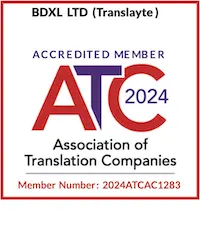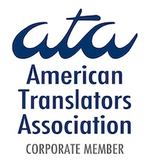Testing for COVID-19 before travel
It hardly needs saying that overseas travel has become very restricted and extremely complicated since the onset of the COVID-19 global pandemic.
However, international travel does still occur, albeit with often strict new regulations about your health and particularly whether you are suffering from any of the typical flu like symptoms of COVID-19. There are some countries that are virtually closed altogether to anyone who is not a citizen or normal resident. Canada and Australia are examples. Others permit inbound travel as long as you are prepared to spend a couple of weeks in quarantine or self-isolation (typically at home or in an approved hotel or guest house).
Understand requirements before travelling
COVID-19 rules and requirements often change quickly as the number of infections goes up and down around the world. Usually, it is easy to find what each individual country requires just by a check on Google. Make sure you use a government website, and that it has current information and not just someone’s blog (including ours).
In addition to finding out how to actually get to your international destination, you also need to know what the entry requirements are, including whether you need a COVID-19 test certificate and how long before your flight or travel you should have it. Assume that you will need all essential documents (excluding your passport) translated before travel.
All documents except the COVID-19 certificate can be translated well ahead of time, to avoid delays, but the negative test certificate will have to be translated just before travel to be valid.
COVID-19 test certificate requirement in countries
Some countries are beginning to open their borders to overseas travellers, including tourists, or already have done so, but insist on you getting a COVID-19 test before you travel from your own country. The test must show that you are negative and in most cases must have been taken within a short period before travel, typically no older than 3 to 4 days old. Evidence of a negative COVID-19 test may take the form of a COVID-19 certificate. If you have actually recovered from COVID-19 in the last few months, an antibody test may also show that you have immunity to it and cannot pass it on to someone else, although there is no clear evidence as yet that immunity is gained from a previous infection.
Having a COVID-19 certificate is no guarantee that you will be allowed into any particular country requiring it, without a further test or even a fortnight’s additional quarantine. As the virus is easily transmitted when in close quarters with other people, anyone with a negative COVID-19 test certificate may still become infected while in transit through an airport or waiting in an airport lounge or on a plane or other form of public transport.
Countries that currently need a COVID-19 test before entry
Note that the entry requirements for many countries at the moment and probably for the immediate future are very fluid. Information about Covid-19 testing requirements from a third party website can get out of date very quickly. It is always best to check the official government website of the country you wish to travel to before making travel arrangements.
How to have your COVID test results translated
In addition to all this, it is also important to be aware that if you intend visiting a country where the official language is not your own, any documentation you need to enter that country, including a COVID-19 certificate, must be translated by a certified translator into the language of that country.
Immigration and health officials at incoming airports cannot be expected to understand a COVID-19 certificate you produce in English if you arrive at a Greek airport, for example. They may also not accept any documents like this unless they have been reliably translated. Many countries demand that documents have been translated by an approved translator who they can rely on for honesty and accuracy.
This is where Translayte comes in. Here at Translayte we can translate your COVID-19 test certificate into practically any other language using locally based translators with officially approved certification. Where sworn translations are required, these can also be arranged quickly.















 Austria
Austria Belgium
Belgium Brazil
Brazil Poland
Poland Portugal
Portugal Switzerland
Switzerland Turkey
Turkey UAE / Dubai
UAE / Dubai Bulgaria
Bulgaria








